Two weeks on Grenada 2013
Sunday, February 17, 2013 (travels), 10 comments
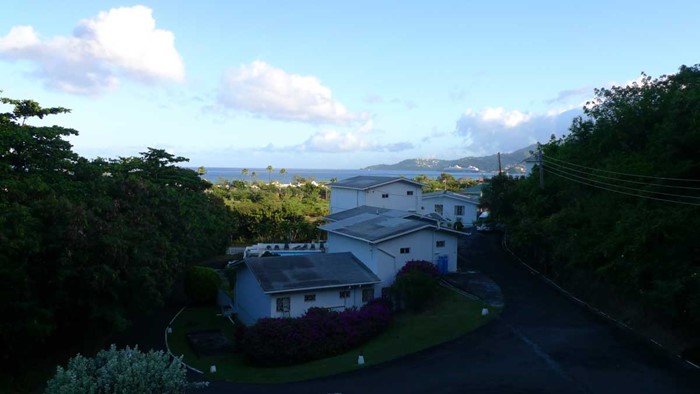
Why Grenada? Primarily since an opportunity appeared to see the sailing family, that for the last month had been cruising around in the Caribbean. All is well onboard, they are tanned, enthusiastic and in tune with a laidback tropical lifestyle – not longing after a regular Swedish job-and-school existence
After two weeks on Grenada, I can see their point.
Grenada is a small volcanic island (344 square kilometers), the southernmost of the Windward Islands – together with Carriacou, Petit Martinique and a few other small islands a parliamentary democracy – with dense rainforests in the gorges (think Jurassic Park), narrow winding roads up and down the mountain ridges, rivers, lakes and waterfalls, plantations (bananas, sugar cane, cocoa, nutmeg etc), surrounded by incredible white beaches, shaded by palm trees and an azure blue 25˚C sea. During the dry season (January to May) the weather is comfortably warm, 25-30˚C – the trade winds are cool and dry.
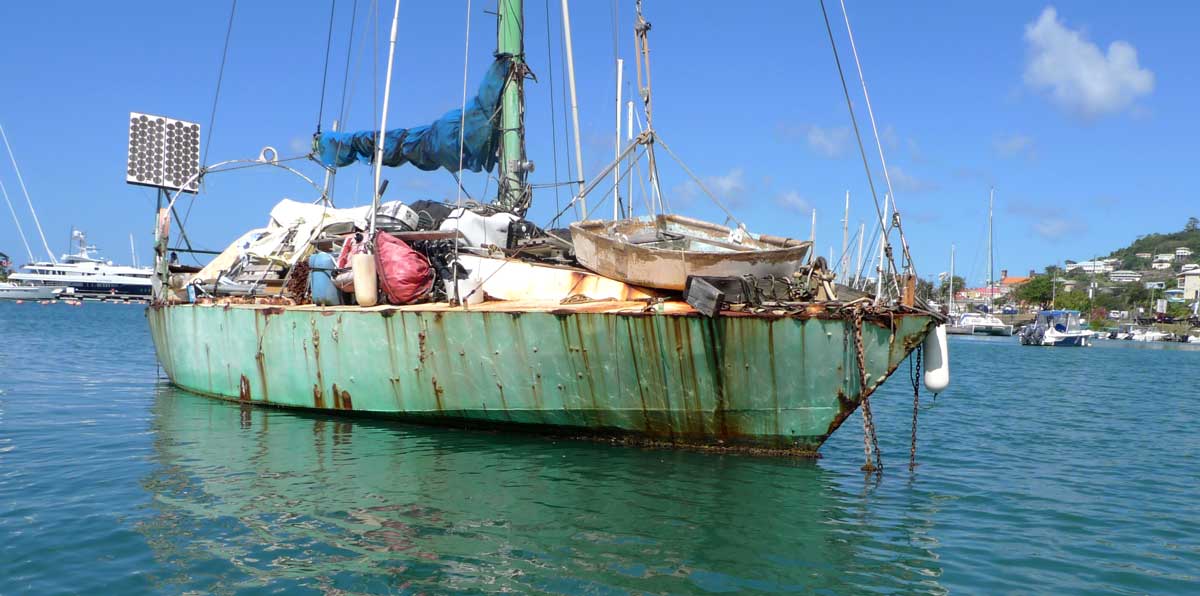
Polish boat in S:t Georges – imagine crossing the Atlantic in this old rusty contraption!
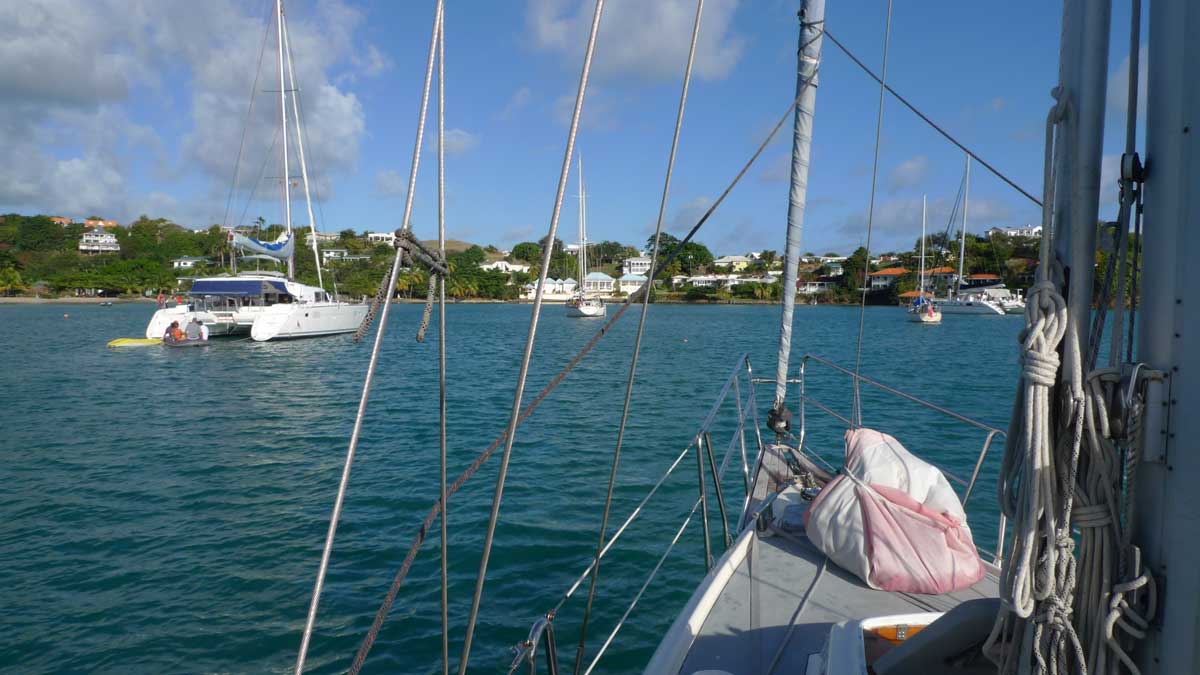
Navigating to a mooring in Prickly Bay on the south coast
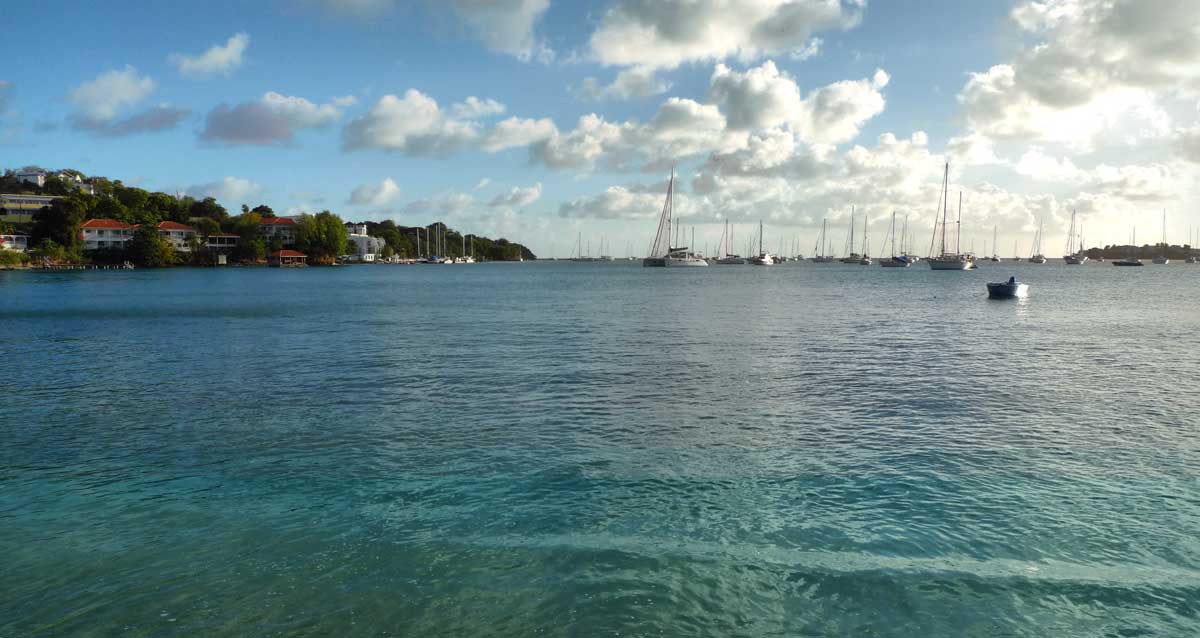
Prickly Bay – view from the beach
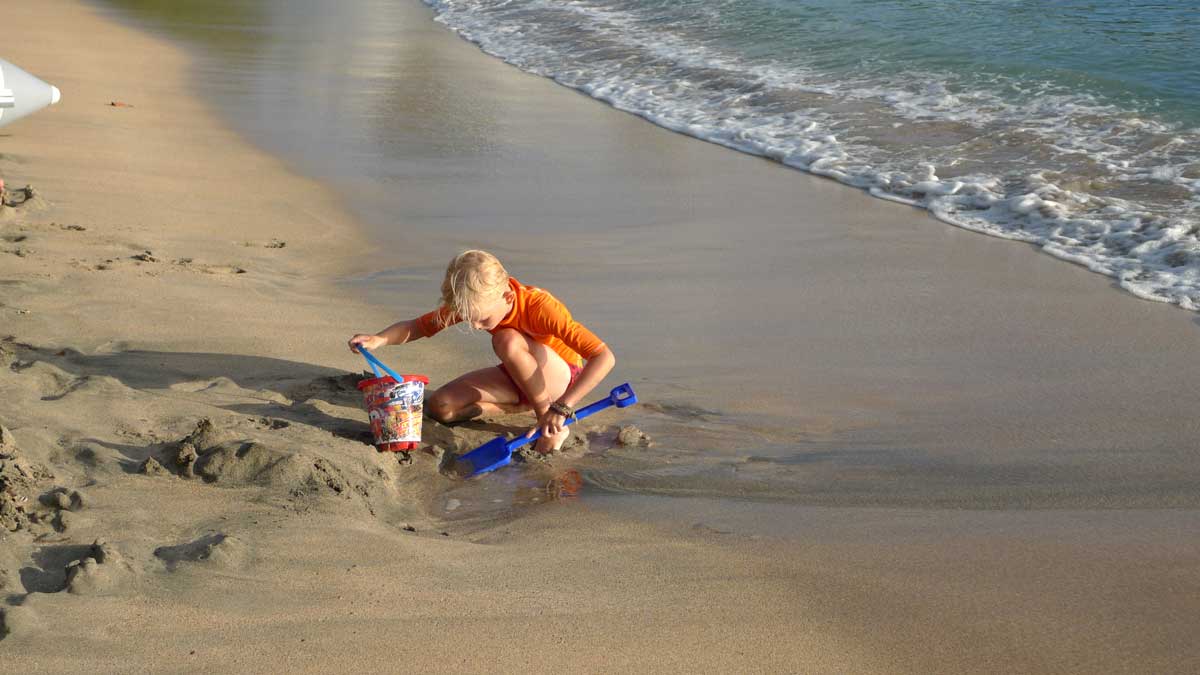
Playing on Prickly Beach
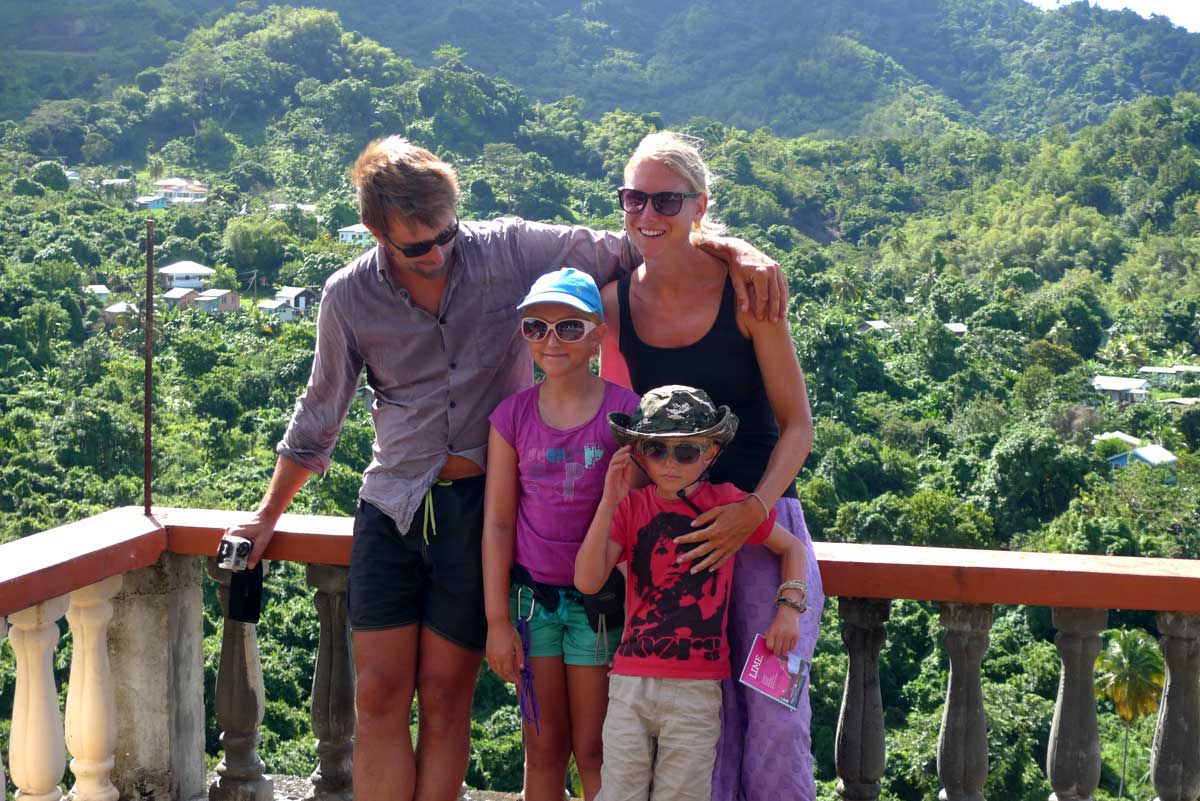
The sailing family
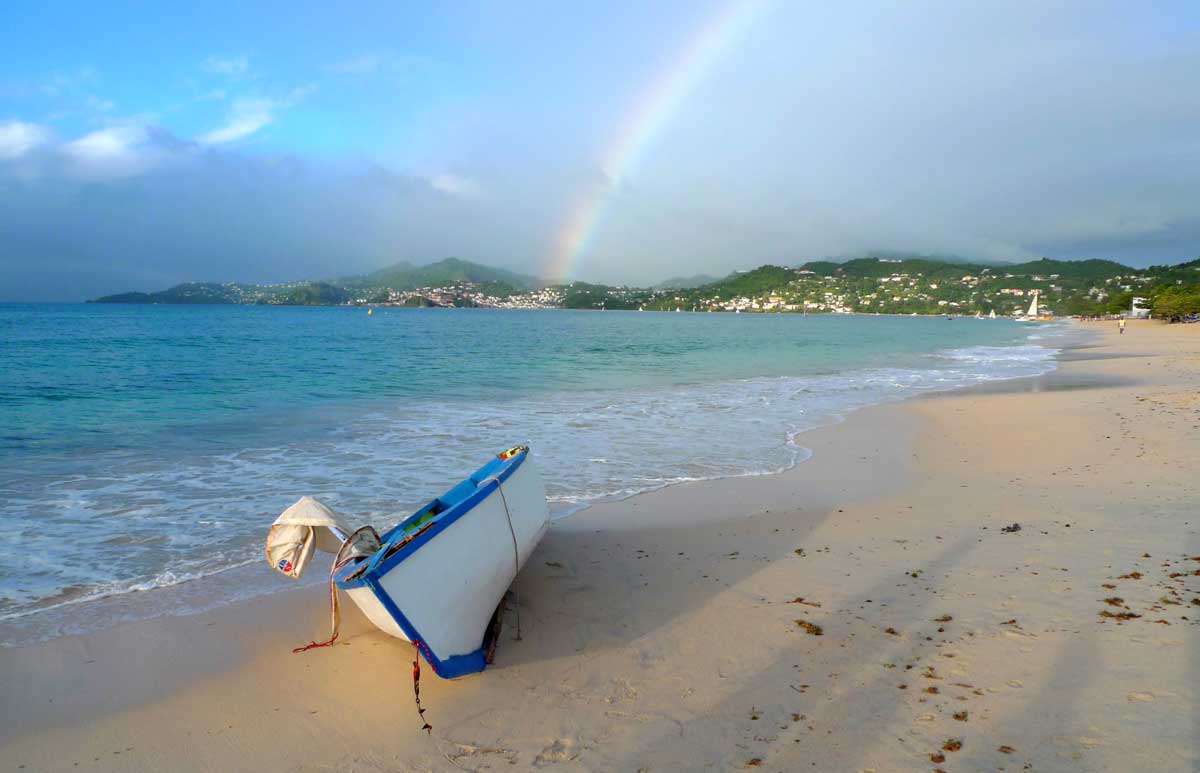
Grand Anse Beach just a short walk from the hotel – and a distant shower
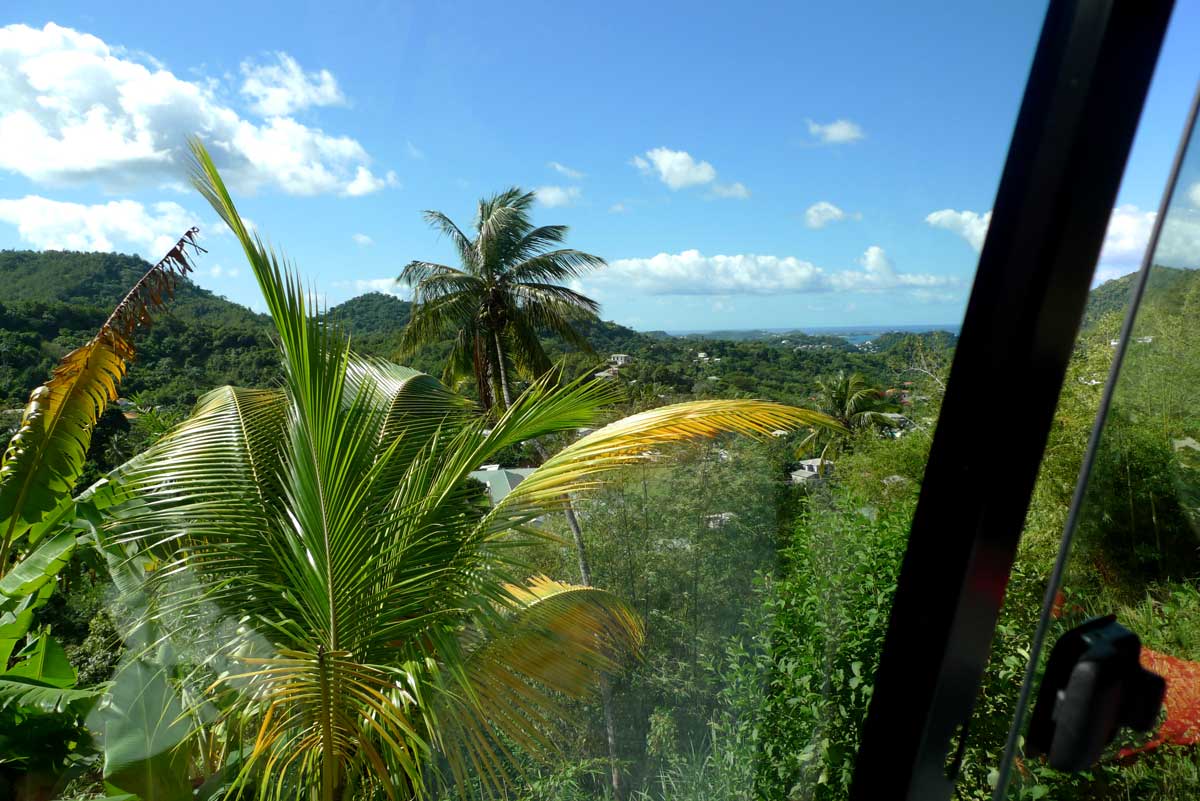
A tour of the inland – lush foliage in the gorges
Some facts (a few of them quite surprising) about Grenada:
- No malaria or other tropical deceases to worry about – a few cases of dengue fever are reported.
- No venomous snakes, spiders, or other dangerous animals – but there is a nasty tree: Manchineel Tree is poisonous – the sap (and even rain dropping from the leaves) can cause burns and eye damage. But those trees are painted red around the stem as a temporary warning and are removed and destroyed in due time.
- Almost no criminality and no gangs. For a Swede used to constantly overcrowded prisons (due to lack of prison capacity rather than the crime rate), it is a bit surrealistic to learn that Grenada's 250 places rarely are used to more than 40% – but still that is a higher rate convicted (1 ‰ compared to 0,6 ‰) than in Sweden. The police are not very visible in the streets – I believe we saw a police car on two occasions at the most. We never experienced any feeling of insecurity or a potentially threatening situation.
-
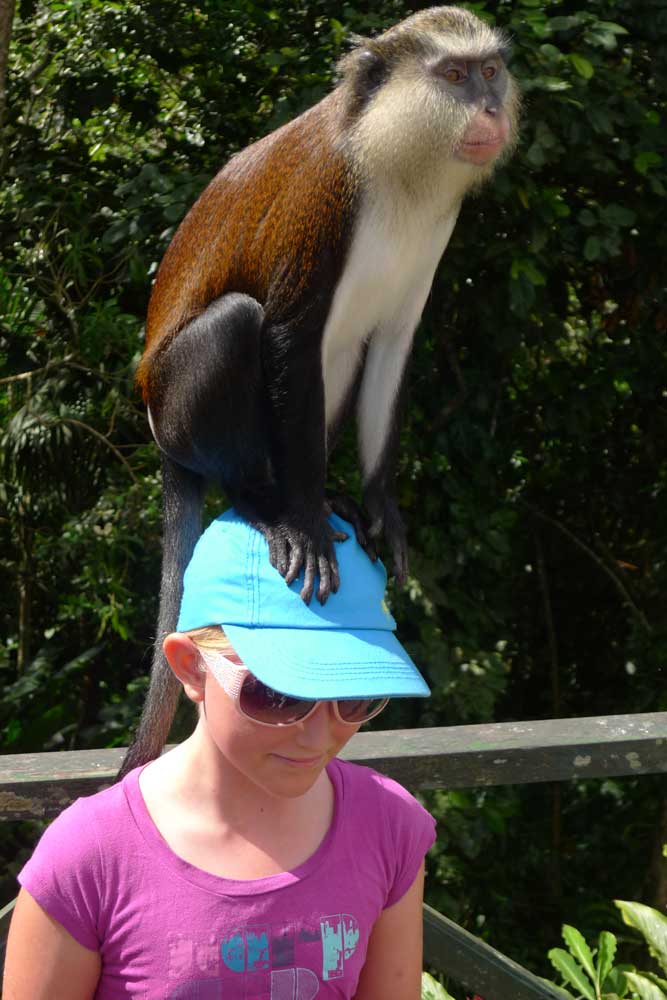 No begging in spite of higher unemployment rate than in Sweden. Since the island is sparsely populated, there is cultivable land for most people that thus can be to a degree self-supporting, and since there is no official social security, people help each other. The society is therefore quite homogenous, in spite of religious and demographic differences. Most of the population is middle class, with small numbers of rich and poor. You will meet more beggars on a short walk through the center of Lund than in two weeks on Grenada – but the fellow on the right begged unashamedly for bananas!
No begging in spite of higher unemployment rate than in Sweden. Since the island is sparsely populated, there is cultivable land for most people that thus can be to a degree self-supporting, and since there is no official social security, people help each other. The society is therefore quite homogenous, in spite of religious and demographic differences. Most of the population is middle class, with small numbers of rich and poor. You will meet more beggars on a short walk through the center of Lund than in two weeks on Grenada – but the fellow on the right begged unashamedly for bananas!
- Very few road accidents in spite of, from our point of view, bad roads and lack of structured traffic regulations – maybe due to the roads being so bad that they actually enforce lower speeds, that there were a lot of really efficient speed bumps of a kind that no one with any regard for the car or their spine/head negotiates in more than 5 km/t, and very efficient and elaborate communications with horns and hands, solving potential problems before they evolve into incidents or accidents. But 12 road kills in one year is still twice as many per capita than in Sweden.
- Public transportation is quite efficient and easily accessible – but a winter-pale Swede has to endure a quite aggressive marketing from buses and taxis. The buses (mostly Japanese minibusses with 12-15 seats) are privately owned by the chauffeur that is licensed for a certain area and the fare is less than one USD. There are bus stops, but in practice, you stop a bus anywhere (or, if the bus is not filled you will be hailed and invited by the conductor before even contemplating a bus ride). To get off, you knock on the roof – but for a few cents extra most bus chauffeurs are happy to deviate from the route and take you just about anywhere. There are a lot of these buses and schedules are unnecessary – you rarely have to wait more than a couple of minutes. I could easily have that system here in Lund ;-)
- Health, healthcare and life quality seems fine. Statistically, Sweden has a lower rate of most serious diseases, but in suicides and drug or alcohol related deaths Grenada fair better. Life expectancy is lower than in Sweden (70,3/75,6 year vs 78,7/83,4 in Sweden). Maybe you can detect a slight difference in beauty ideals in the obesity numbers: in Sweden 16,3 % of the men and 15,4 % of the women are fat – on Grenada 13,6 % of the men but 27,1 % of the women are fat ;-)
Sweden occupies an embarrassing fourth place among the countries of the world in Alzheimer frequency whereas Grenada is in place 119. There is a reputable university in S:t George, where many American medical students and professors spend a couple of years of their educations or careers. (Numbers from www.worldlifeexpectancy.com/ and from 2010)
- Grenada lies south of the hurricane highway through the Caribbean and has been hit by just three severe hurricanes in the last 50 years. Hurricanes Janet 1955 and Ivan 2004 were the worst while Emily 2005 caused some damage on island Carriacou north of Grenada. Other hurricanes have passed north of the Grenadines (as "minor inconveniences"). Grenada is thus considered hurricane safe for visiting boats. There are several “hurricane holes”, deep protected fiords were boats can weather out even quite dramatic conditions.
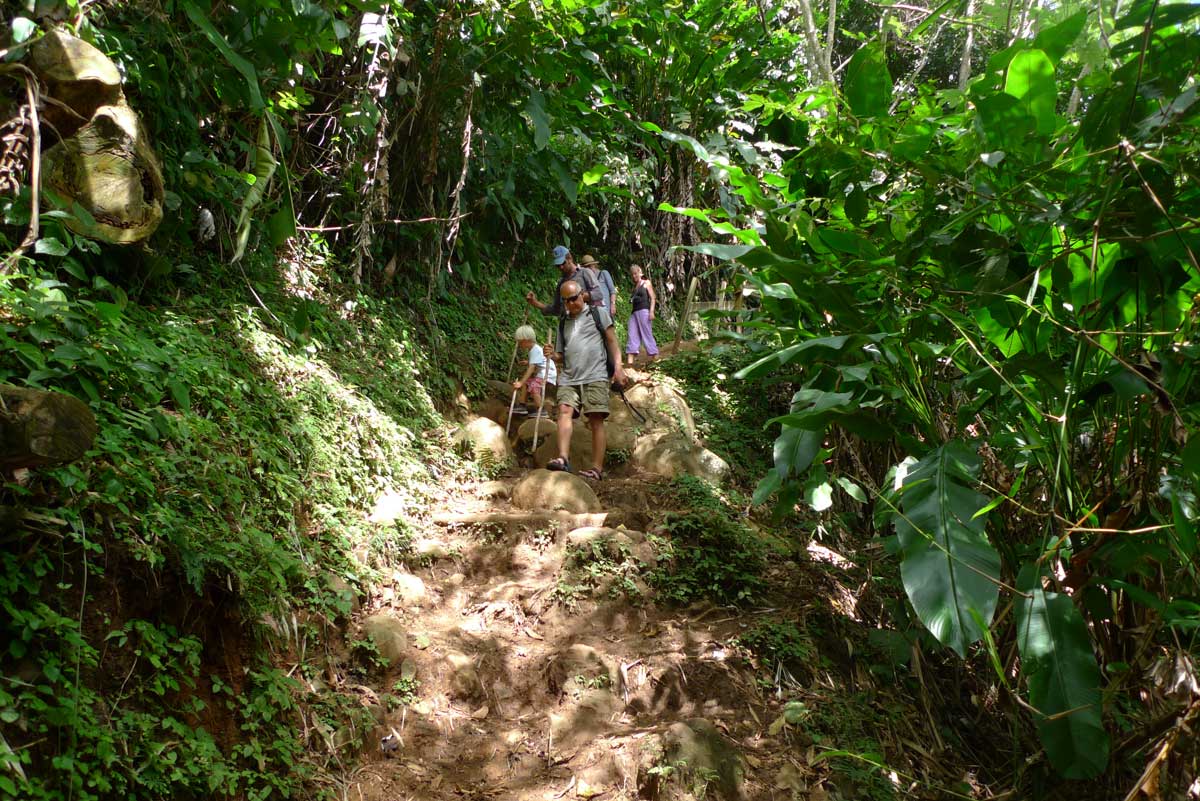
Steep climbing to the Seven Sisters Falls – it doesn’t look all that tough in the photos, but I can assure it was quite a climb
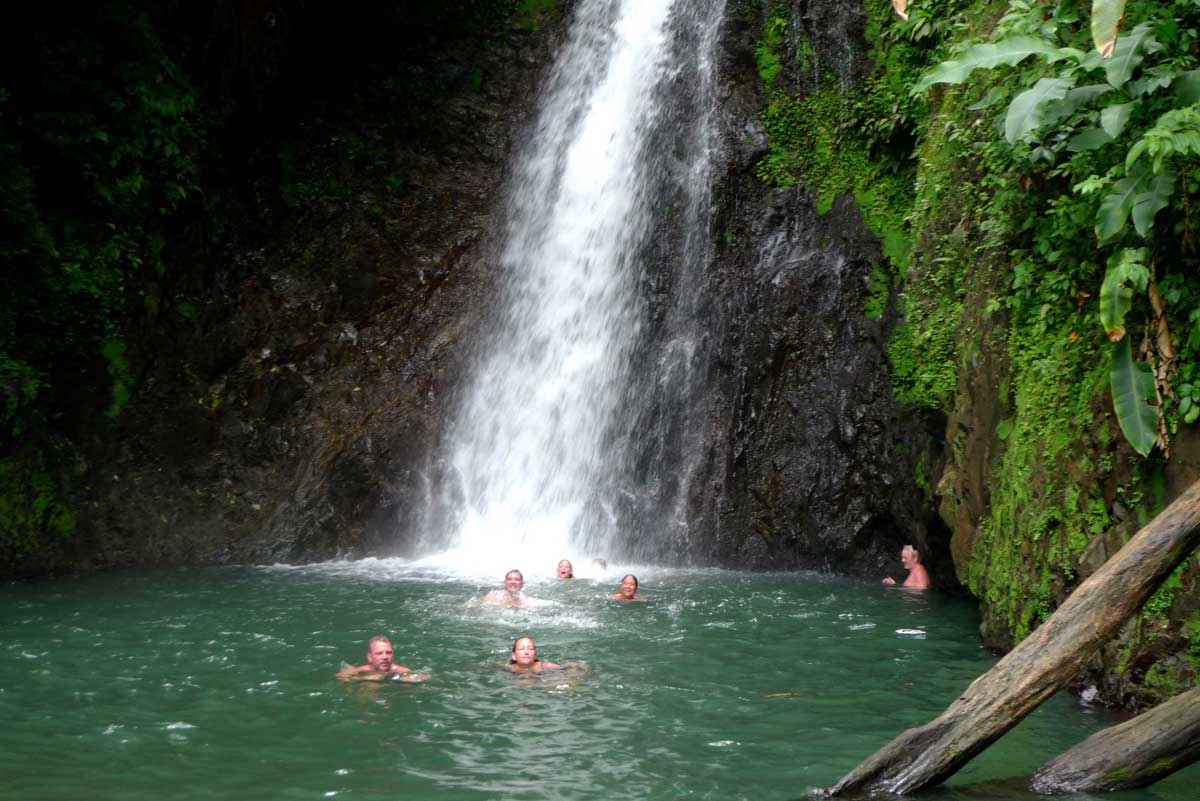
Seven Sisters Falls with cool crystal clear water
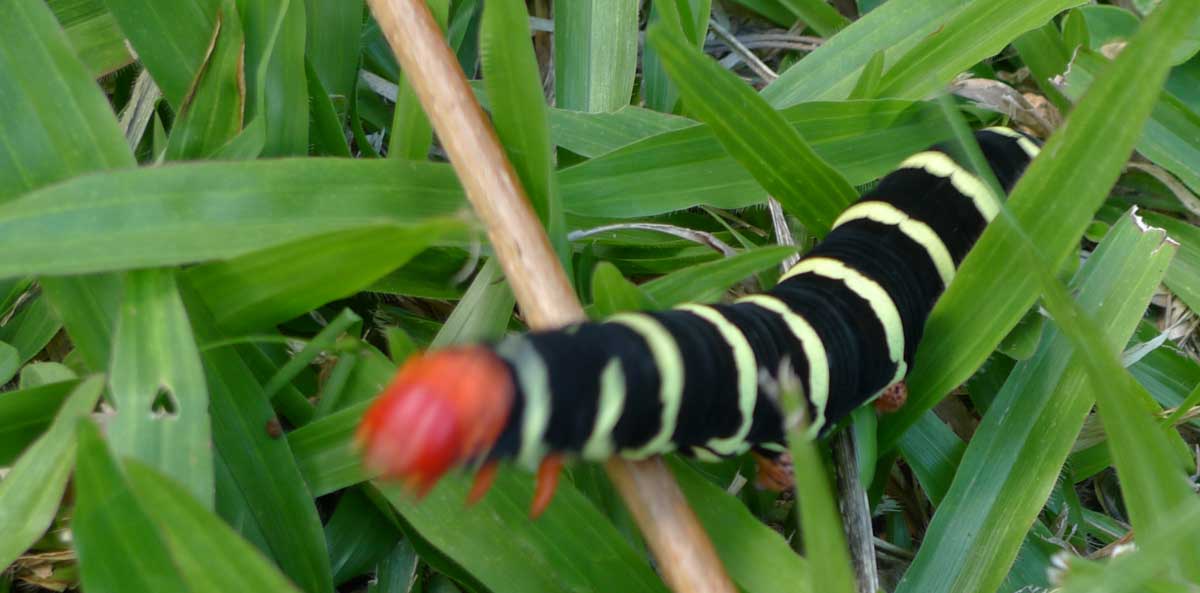
A Monarch butterfly caterpillar came crawling through the undergrowth – thick as a thumb and well over 4” long

Russian plane wrecks on the destroyed Russian-Cuban airstrip – a reminder of the American invasion "Operation Urgent Fury" 1983 (they do have a flair for fancy marketing names over there!)
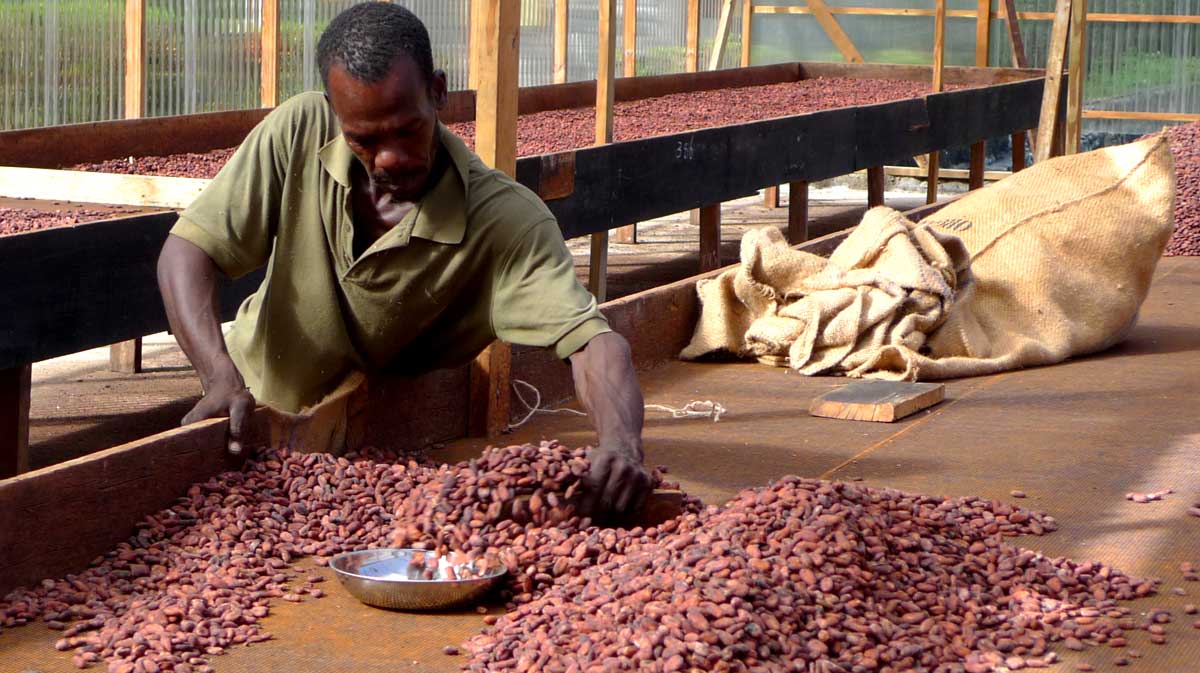
Cocoa beans are dried and packed after fermenting – and becomes delicious chocolate a little later in the process ;-)
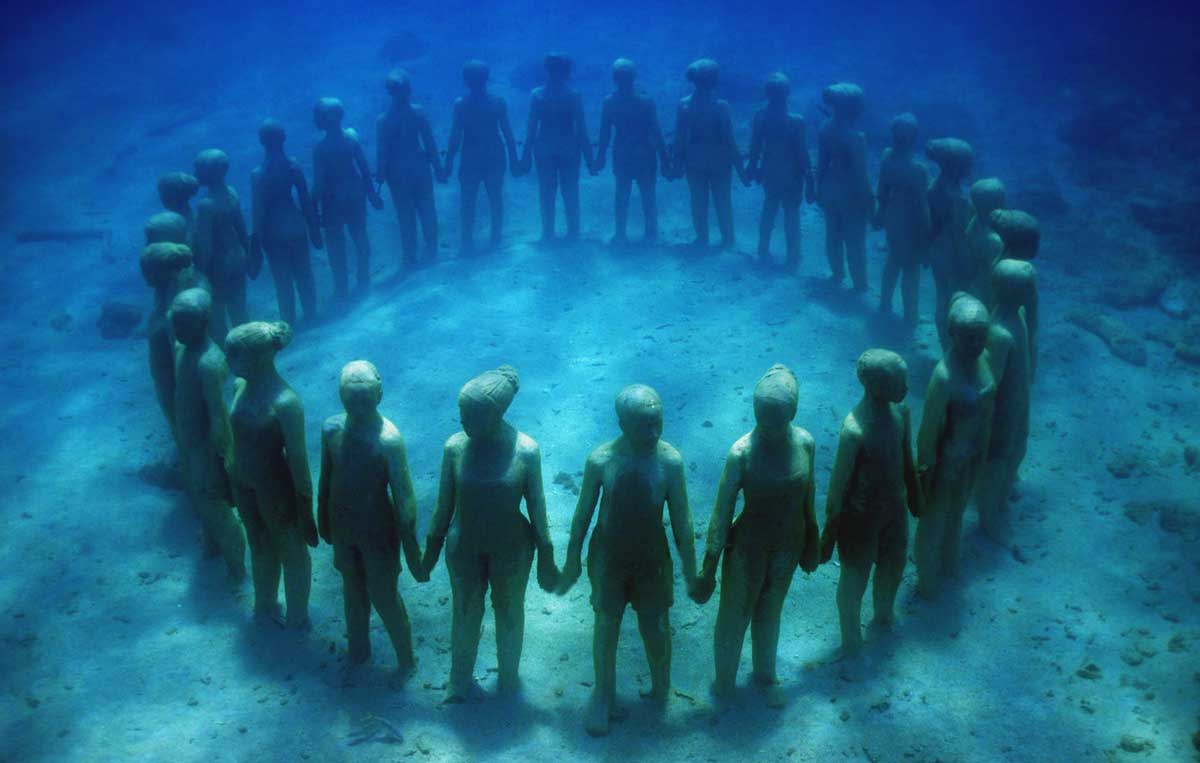
One of the days we sailed north to Moliniere Bay and Jason deCaires Taylors exciting underwater sculpture park. 5-6 meters deep he has placed a number of life-sized figures, partly as an art installation and partly as a protected foundation for new coral reefs (as in many other places the old reefs are being destroyed through fishing, anchoring, pollution etc). Really exciting to visit an art exhibition wearing snorkel, mask and fins. (Photo from surrealistisch.blogspot.se – I did not bring my sports camera)
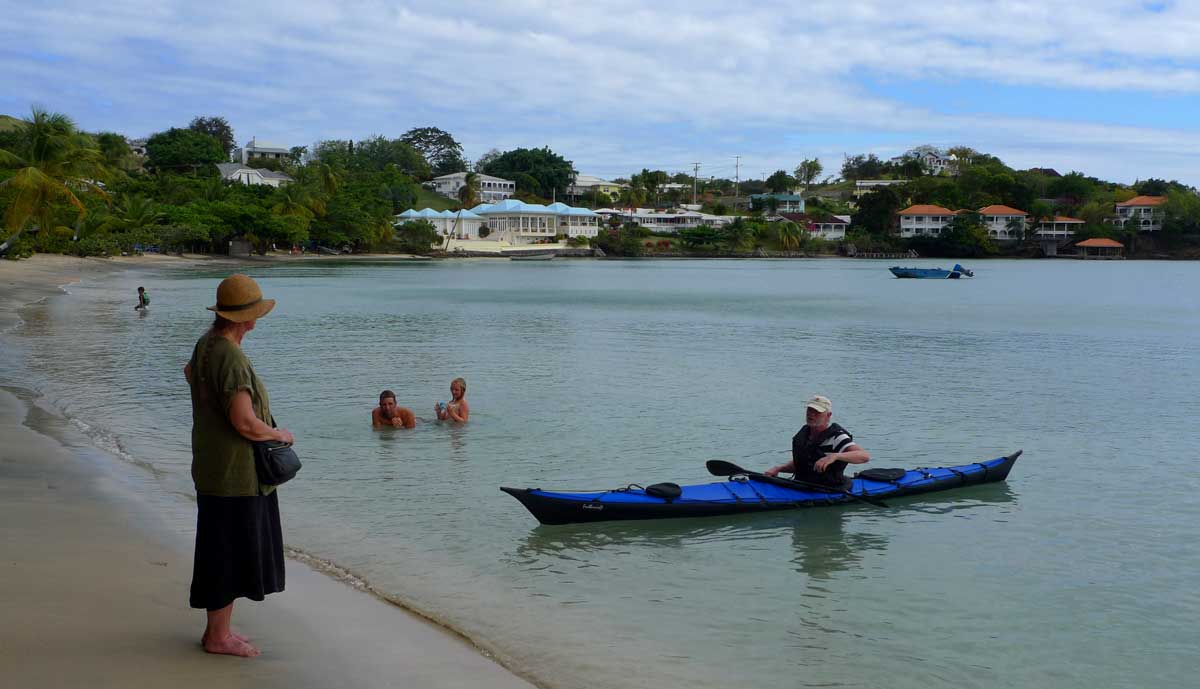
The kayaking culture was awful – nothing but soft plastic recreation sit-on-tops and flimsy plastic paddles. But I had the good fortune of being offered to borrow a Feathercraft Khatsalano and a wing paddle from one of the Swedish boats in Prickly Bay, for a couple of hours around the bays and points (thanks, Staffan!)
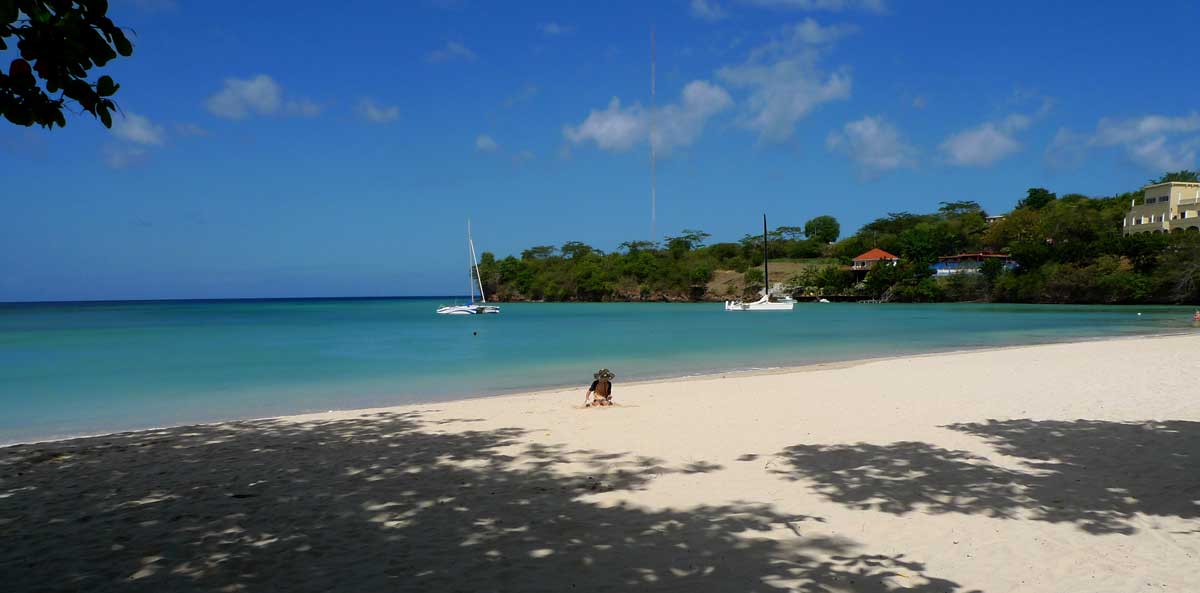
Morne Rouge Beach a short walk from the hotel – small, nice and somewhat secluded...
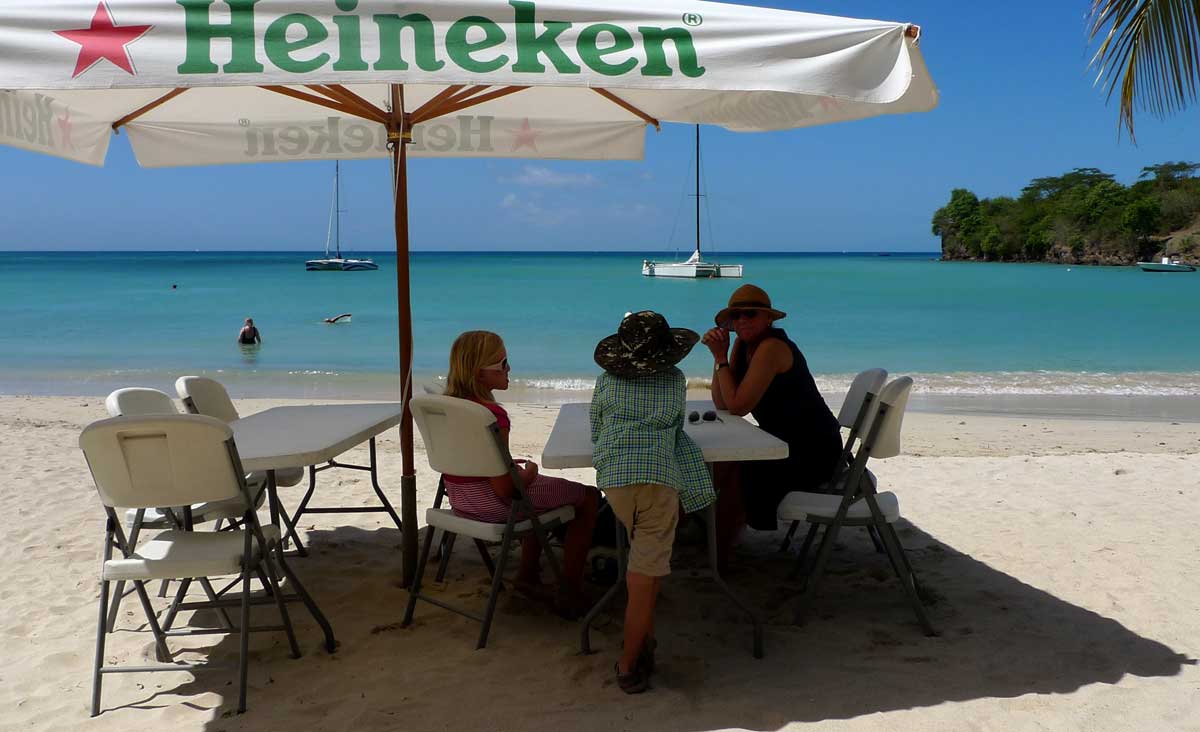
...and with nice bars on the beach
After a couple of days I began dreaming of a cottage with a design studio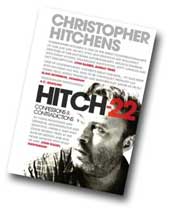 on the hill overlooking the bay, where I could draw up kayak plans and logos, and knock up websites – and perhaps try to introduce a more diversified and evolved kayaking culture. The prices did not seem too formidable and the internet connections were fast and reliable ;-)
on the hill overlooking the bay, where I could draw up kayak plans and logos, and knock up websites – and perhaps try to introduce a more diversified and evolved kayaking culture. The prices did not seem too formidable and the internet connections were fast and reliable ;-)
Fascinating travel literature to enjoy under the palm trees when the new suntan needed a break: Christoffer Hitchens autobiography, cleverly titled Hitch-22.

